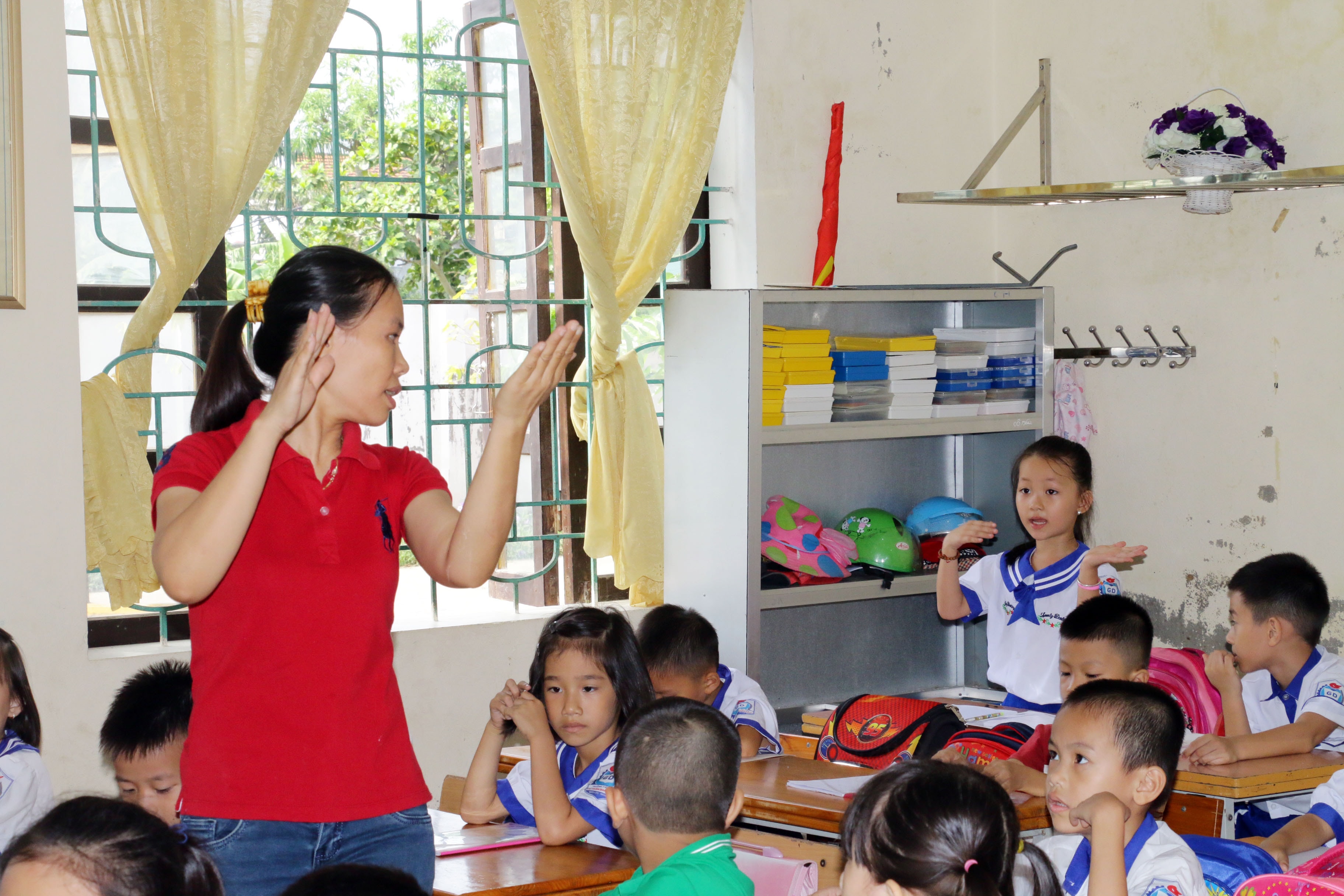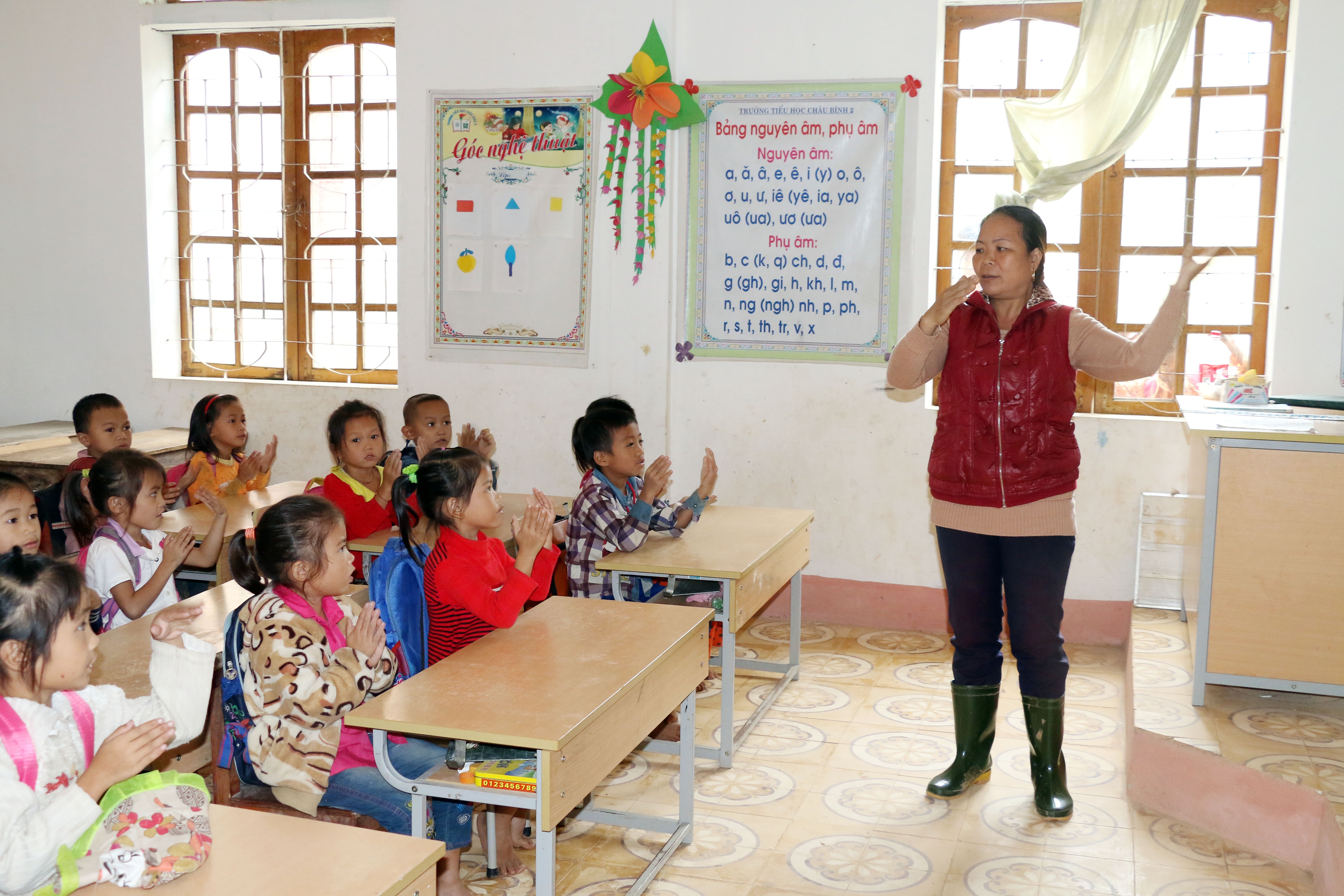Vietnamese Technology: Need to listen to complete the program
(Baonghean.vn) - Through the widespread implementation in Nghe An, the Vietnamese Technology program has brought many positive results. However, in addition, to perfect the program, adjustments are needed to be closer to the students, closer to Vietnamese culture and reduce pressure.
Teacher Vu Thi Kieu Dung - Principal of Quan Hanh Primary School
Giving teachers autonomy in teaching
This is the 6th year we have applied the program in the school. At first, the implementation was quite difficult, firstly because of the teacher training, secondly because of the pressure from parents because they thought there was a difference between the current program and the technology.
However, as managers, we have advised and informed parents about the advantages of the program. Moreover, we have convinced parents with the effectiveness of the technology program through the results of 5 years of implementation.
In fact, this program has many advantages because after finishing the course, students can read and write fluently and basically complete. Students have a firm grasp of the spelling rules and phonetic structure of the language. Especially, first grade students are developed scientific thinking through the series of activities that have been implemented in the lesson.
 |
| Vietnamese language class following the technology program at Quan Hanh Primary School. Photo: My Ha |
However, in addition to the advantages, the Vietnamese Technology program has limitations: Although the program is differentiated for general students and good students, there are still many reading passages that are too long. In addition, some lessons have a lot of sounds and some words have no meaning, some idioms and proverbs are very difficult for first graders, making it difficult for students to remember. Moreover, there are some lessons that are not highly educational.
Faced with this reality, we require teachers to first do a good job of mass education, ensuring that 100% of students can follow the standard technology program. As for differentiated students, we let them approach difficult and long lessons.
I also see, through the feedback of parents, students, teachers, every year the Vietnamese Technology textbook is also revised and teachers are also trained. With words that have a vacuum of meaning, we also allow teachers to replace them to be autonomous in the teaching process.
Assoc. Prof. Dr. Thai Huy Vinh - Deputy Director of Department of Education and Training:
Educational technology has a place to live because it also helps the goal of the first grade program succeed.
Over the years, although the Department's viewpoint is to implement it voluntarily, the number of participating schools has increased every year, each year higher than the previous year, showing the positive aspects of this program. That is, students can read fluently, write fluently "learn as much as you know" and write with accurate spelling.
The program is also particularly suitable in mountainous areas with large ethnic minority populations, areas with many dialects and no re-illiteracy.
 |
| Many years ago, students in the mountainous areas of Nghe An studied under the Vietnamese Technology program. Photo: My Ha |
I also see that, evaluating the teaching of Vietnamese for grade 1 according to the technology program, pronunciation is the core outside, and educational technology has a place to live because it also helps the goal of the grade 1 program to be successful. That is the way of organizing teaching (helping students experience and learn by themselves under the guidance of the teacher, according to the motto "teacher designs, students construct").
Thanks to this method, first graders studying the technology program have faster reading and writing skills. Second, Professor Ho Ngoc Dai's approach to language is in line with the law of skill formation.
When people can hear and speak the correct sounds, they can write correctly. This also creates a difference with the current program. In the old program, students can read fluently but can write incorrectly because they cannot recognize the correct sounds.

Educational technology: "Spell, but don't spell Mr. Dai"
(Baonghean.vn) - The spelling method according to the Vietnamese textbook by Professor Ho Ngoc Dai has been taught in experimental schools for forty years; one small drawback should not deny the other advantages of this method.


